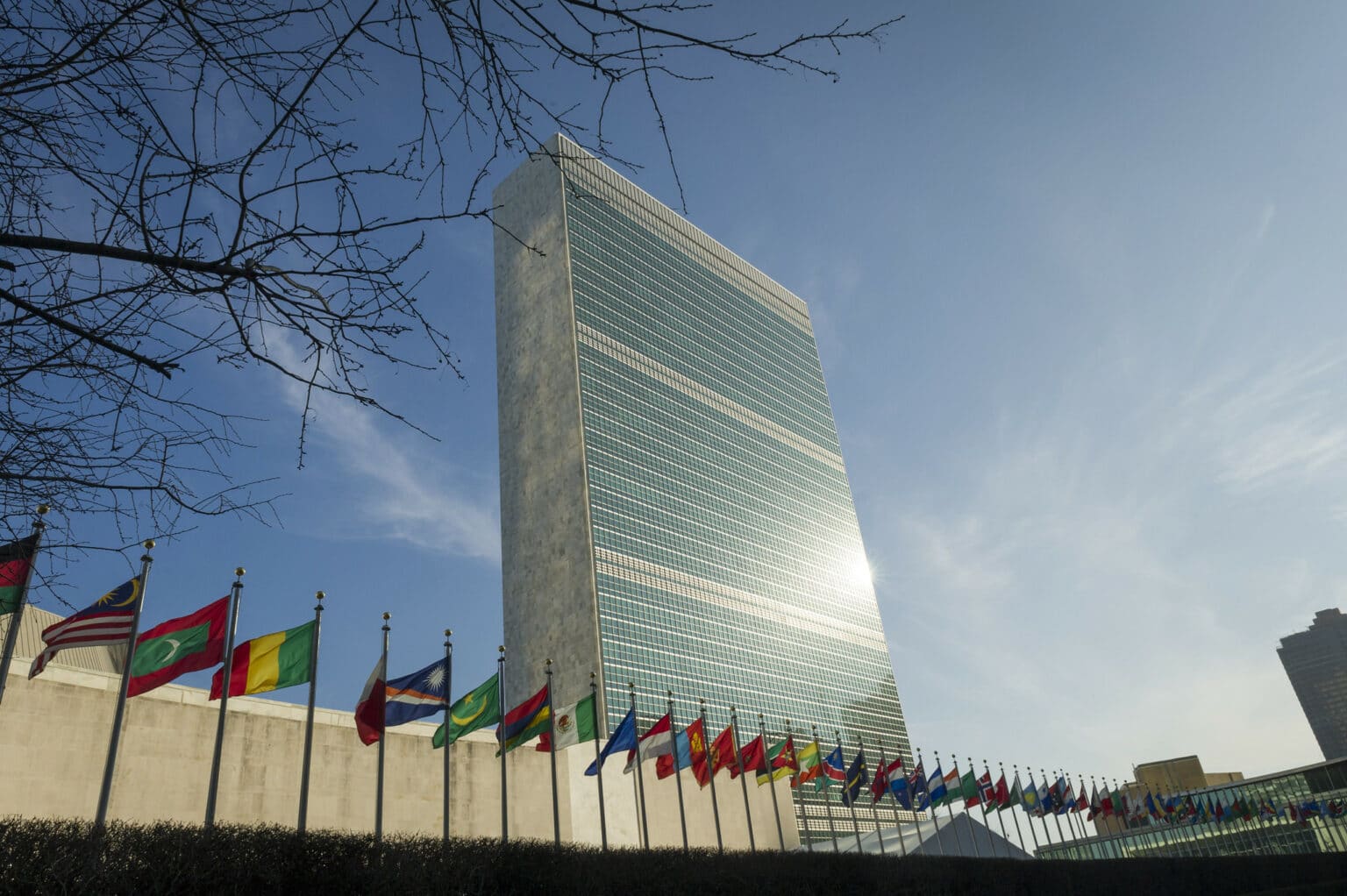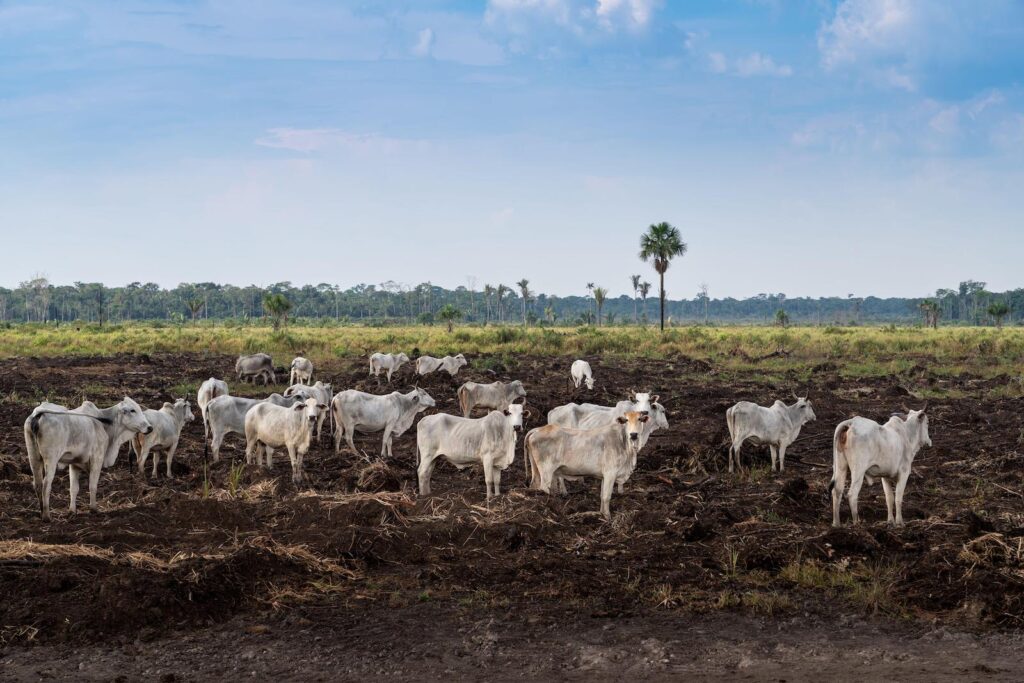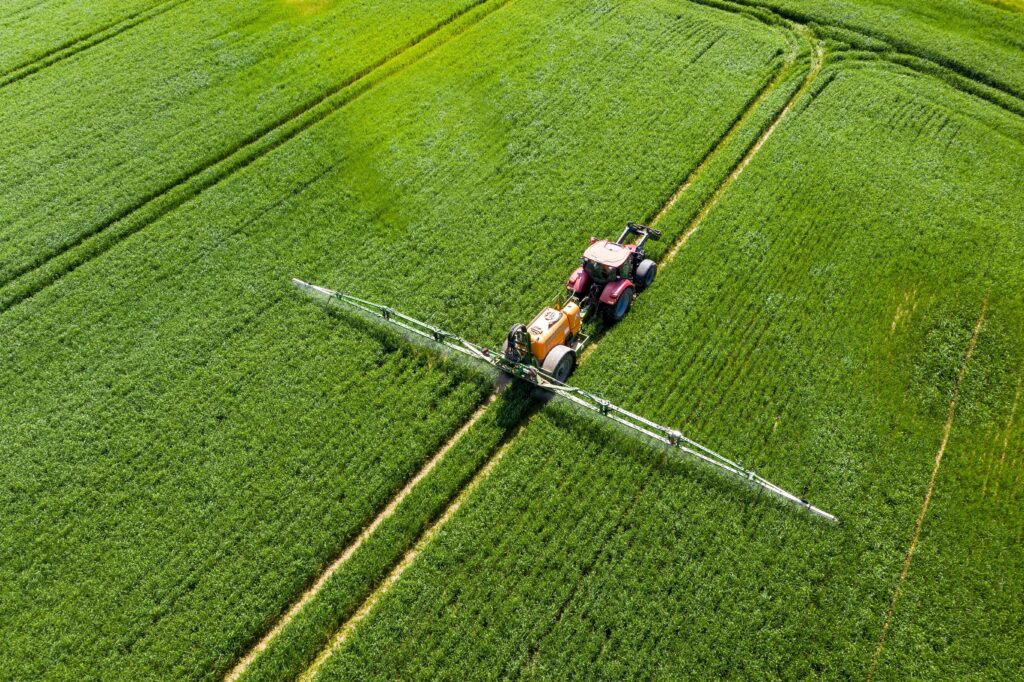By Daniela De Lorenzo
The scale of agri-food giants’ influence and greenwash efforts surrounding the first-ever UN Food Systems Summit, held yesterday in New York City, has raised concern among sustainable farming experts.
The summit aimed to help countries agree on how the food sector should become more sustainable and equitable in order to meet the Paris Agreement’s climate targets.
But increasing pressures by agribusiness lobbies and the industry’s limited climate commitments risk derailing efforts to transition global food systems towards more just and environmentally-friendly operations, experts say.
As the AP reported, “grassroots anti-hunger groups and food experts blasted the event as too corporate, tech-focused.”
Over 500 academics and advocacy groups for food sustainability, small farms and Indigenous people issued a declaration criticizing the event for being too cozy with corporate interests and relying too much on “big money and technology as potential solutions,” described the AP.
The groups said the summit disregarded “the urgent need to address the gross power imbalances that corporations hold over food systems.”
Corporate Capture
In an interview with The Guardian, Michael Fakhri, UN Special Rapporteur on Right to Food, accused the summit of being “led by scientists and research institutes who are pro-corporate sector”.
DeSmog recently reported how HealthforAnimals, a Belgium-based organization representing some of the world’s biggest animal pharmaceutical companies, presented “misleading” information to back their current business models. And a recent investigation by Greenpeace’s Unearthed revealed how a coalition of meat industry associations have been pushing for the summit to boost global meat consumption.
Agriculture’s role in fuelling the climate and biodiversity crisis has become increasingly apparent in recent years. The meat industry contributes 60 percent of the greenhouse gas emissions of the food sector globally. The IPCC estimated that agricultural lands occupy about 40 percent of the Earth’s land surface, producing one fourth of global greenhouse gas emissions.
This past year has seen a number of corporations announce net-zero emissions goals such as Pepsico and Nestlé.
JBS, the world’s second-largest food company, also shared its plan to support regenerative agriculture practices, which are said to improve soil health and biodiversity. Companies have also been promoting the use of better technology for the application of fertilizers and pesticides, along with backing efforts to store more carbon in the soil.
But the benefits may sometimes be overplayed and companies tend to include offsetting their emissions as a way to reach their net-zero goals.
And some experts remain sceptical. “I don’t see that in their climate plans they are creating a systematic transformation,” said Shefali Sharma, European director at the Institute for Agriculture and Trade Policy, a U.S.-based sustainable farming research organization. “Companies are talking about supporting their supply chain. But when you look at the fine print they do not choose practices that help farmers transition towards more sustainable systems.”
Despite glowing media coverage, experts warn that regenerative agriculture lacks a clear definition. This means corporations are using the term to describe a vast array of different practices. There are also fears that some are placing too much confidence on the effectiveness of regenerative agriculture to curb emissions.
An analysis conducted of American multinational food producer General Mills at their regenerative livestock farm, for instance, claimed the operations were carbon-negative, but scientists found that while it reduced emissions by 66 percent compared to conventional agriculture, it wasn’t carbon negative as the company claimed.
Recent research by FAIRR, an environmentally-focused investor network worth £29 trillion, showed that over 80 percent of the largest meat and dairy suppliers are failing to set or declare targets for their greenhouse gas emissions.
“Protein producers should set science-based targets to reduce their emissions, set targets to track and address deforestation in their supply chains, manage antibiotics usage actively through transparent reporting and develop policies to address nature loss in their operations,” commented Helena Wright, FAIRR’s policy director.
The need to look at emissions reduction applies to the agrochemical sector, too, said Nicola Cannon, associate professor of agriculture at the Royal Agricultural University in Gloucestershire, UK.
“The current production systems heavily rely on synthetic fertilisers and agrochemicals which are energy intensive to produce and potentially damaging to the environment,” said Cannon of these fossil fuel-based products, which manufacturers have increasingly been promoting as essential to tackling climate change.
As an alternative to finding alternative means of pest control or other types of fertilizers, major players in the sector point to new technologies and greater use of data as a means of limiting pesticide and fertiliser use.
But, as experts note, this doesn’t eliminate the use of these potentially environmentally harmful products. “Making intensive large-scale industrial practices less bad does not create the transformational shift we urgently need,” said Sharma.
Sharma likened accepting the industry’s proposed climate solutions to “‘putting band aids on an extractive system”.
Most often these “techno-fixes” do not change the carbon-intensive industrial model of food production — and could even potentially increase emissions due to the energy use involved in data transfer.
“Agrochemical companies are talking about the emissions intensity reduction per unit of fertiliser use,” said Sharma. “It’s not like they’re changing the inputs, they’re just saying they will do better with these inputs, while increasing sales of these products.”
Corporations are also working to build momentum around soil carbon markets, where carbon is trapped in the earth and plants’ roots. Farmers are either rewarded for capturing and offsetting their own emissions through practices that promote carbon sequestration in the soil or, conversely, other stakeholders help offset emissions on their behalf by buying “soil carbon credits” through a global market.
“We’re seeing a gold rush of investment in soil carbon credits,” said Emily Oldfield, agricultural soil carbon scientist at the Environmental Defense Fund, a U.S.-based environmental organization. In a recent report, it warned this practice “lacks comparability and consistency” as various accounting models take different approaches to measuring and reporting soil carbon benefits, producing inconsistent results.
“We need credible, consistent and cost-effective measurement and verification to know with confidence that soil carbon credits are moving us toward that target,” the report states.
And as the latest IPCC report warns, rising temperatures affect soil’s capacity to store carbon, while the increase in the number of natural disasters may also limit the possibility for soil to reliably remain an undisturbed carbon sink.
Calls for Agroecology Transition
Regenerative agriculture and “smart farming” measures pledged by corporations are distracting from more fundamental reforms needed, experts say.
Sustainable farming advocates believe there are better ways to reverse the climate impacts of agriculture while avoiding locking farmers into a reliance on expensive technology. “Instead of rewarding farmers for counting carbon, or employing other industrial techniques like precision agriculture, governments could reward farmers to transition to agroecology, for their actions on the ground that build soil health, biodiversity, and create climate resilience in agricultural systems,” said Sharma.
Ahead of the UN Food Systems Summit, an open letter signed by Michael Fakhri, David R. Boyd and Olivier de Schutter — the three Special Rapporteurs appointed to ramp up efforts towards sustainable and equitable food systems — urged the summit to refocus on “agroecology”, describing the approach as “one of the best ways to ensure that food systems fulfil people’s human rights,” arguing that it “can reduce environmental impacts and improve livelihoods for small-scale farmers”.
Transitioning toward agroecology, an umbrella of practices including organic farming and agroforestry which aim to reduce harmful agriculture practices and the sector’s emissions, has been backed by civil society movements, NGOs and agencies, such as the UN Food and Agriculture Organization (FAO).
Adopting agroecology for crop production would for example require a decrease of fertilisers and pesticides use. The practices have mainly been adopted by small-scale farmers, as big corporations associate it with a decrease in crop yields and revenues, although research says agroecology could also be viable for large-scale farming.
A report published this week by UK charity Christian Aid stated that widespread adoption of agroecology would see huge benefits to soil health, water usage, and climate change. “Despite the clear benefits, agroecology receives only 1% of global agricultural research funding,” said Winnie Mailu, Christian Aid’s markets and livelihoods advisor and co-author of the report.
On September 23 at the summit, the Secretary-General António Guterres announced key UN agencies, including the Food and Agriculture Organisation, the International Fund for Agricultural Development, and the World Food Programme, will jointly lead a UN coordination hub to continue the work beyond the summit while “strengthening the science-policy capacities and interfacing at local and national levels”.
The COP26 Summit will be the next moment when countries will gather to discuss how to accelerate action towards meeting the goals of the Paris Agreement and decarbonise economies.
As a first step, agricultural emissions targets must be disclosed within countries’ climate pledges, as a way of driving the farming sector to embrace a low-carbon transition, Wright said.
Ultimately, however, many remain unsatisfied.
“The food systems summit has categorically failed,” Fakhri said in a video he tweeted Wednesday. “The summit’s organizers have ignored people’s daily struggles. And who’s benefited from this agenda? Corporations.”
Subscribe to our newsletter
Stay up to date with DeSmog news and alerts







